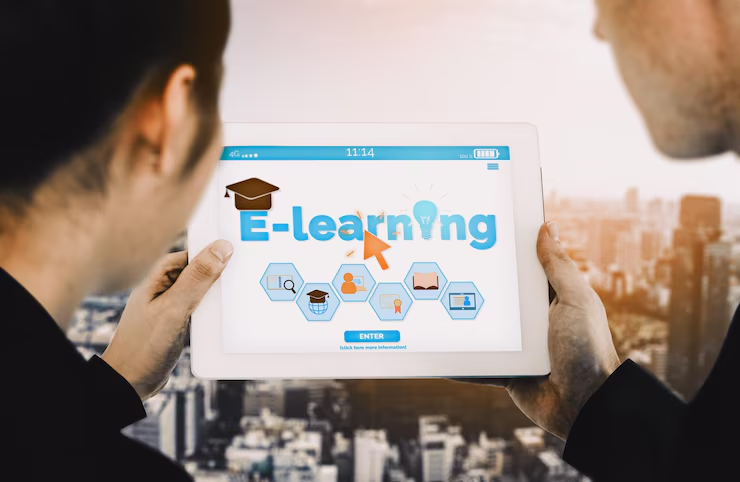In today’s fast-paced world, learning new skills is essential. Whether it’s a technical skill, a hobby, or professional expertise, the ability to learn quickly and efficiently can set you apart. A fantastic way to start your learning journey is by applying the techniques outlined in this guide. The first step is to adopt a growth mindset and understand the importance of focused learning. Welcome to MotionTechno, your source for mastering skills with precision, speed, and dedication.
This guide will walk you through essential strategies that will help you pick up any skill more effectively. From proper goal-setting to the science of deliberate practice, we’ll explore how to learn faster and retain information more efficiently.
The Art of Learning Fast
1. Set Clear and Specific Goals
Learning begins with clarity. If you’re serious about mastering any skill quickly, you need to have a clear direction. Instead of vague goals like “learn programming,” be specific. For example, “Learn Python programming for web development” gives you a clear target. Goals should be broken into smaller, achievable milestones, which will give you a sense of progress and keep you motivated.
2. Leverage Focused Practice (Deliberate Practice)
One of the most powerful learning techniques is deliberate practice. This involves practicing the skill with a focused and mindful approach. For instance, if you’re learning to play the guitar, don’t just strum randomly. Focus on one chord, improve your technique, and slowly build up to more complex pieces. The more specific your practice, the faster you will improve.
3. Utilize the 80/20 Rule (Pareto Principle)
The Pareto Principle suggests that 80% of your results come from just 20% of your efforts. Apply this to learning by identifying the most critical components of the skill you’re mastering. For example, in learning a new language, 20% of the vocabulary will cover 80% of everyday conversations. Focus your energy on the vital few elements and you’ll see exponential improvement.
4. Chunk Information for Faster Retention
The process of chunking involves breaking down information into manageable units. This technique is based on the idea that the brain can only process a certain amount of information at once. By chunking, you group similar pieces of information together. For example, instead of memorizing each note in a piano piece, group the notes by their patterns. This helps with quicker recall and better long-term retention.
5. Learn by Teaching Others
Teaching is a powerful method to solidify your understanding of any topic. When you teach someone else, it forces you to articulate your knowledge clearly and recognize any gaps in your understanding. Whether it’s explaining a concept to a friend or creating a blog post, the process of teaching deepens your knowledge and accelerates learning.
6. Embrace the Power of Visual Learning
Humans are naturally visual learners, and incorporating visuals into your learning process can drastically improve your comprehension and retention. Diagrams, flowcharts, infographics, and video tutorials can simplify complex concepts. Visual aids help create mental models that make it easier to grasp and remember new information.
7. Use Spaced Repetition
Spaced repetition is a proven technique for retaining information long-term. The idea is to review information at increasing intervals over time. Tools like Anki or Quizlet can help you create flashcards and test yourself at spaced intervals, which solidifies the information in your long-term memory. This method is particularly effective for subjects like language learning or memorizing formulas.
Overcoming Common Learning Barriers
1. Avoid Perfectionism
Striving for perfection is a common learning barrier. The fear of making mistakes can hold you back from experimenting and learning new things. Instead of aiming for perfection, focus on progress. Mistakes are a natural part of the learning process and offer valuable insights that help you improve faster.
2. Manage Mental Fatigue
Learning can be mentally taxing, especially when trying to master a difficult skill. It’s crucial to take regular breaks to prevent burnout and keep your mind fresh. Try using the Pomodoro Technique, where you work for 25 minutes, followed by a 5-minute break. This keeps your brain engaged while avoiding exhaustion.
3. Stay Consistent
Consistency is key to mastering any skill. Set aside a fixed amount of time every day for your practice. Whether it’s 15 minutes or an hour, the key is consistency. The more regularly you practice, the faster you’ll see results.
FAQs
Q1: How do I stay motivated during the learning process?
A1: Staying motivated can be challenging, but setting small, achievable goals and celebrating your progress can help. Try to focus on the enjoyment and the journey, not just the end result.
Q2: What is the best way to learn a new language quickly?
A2: Immersion is one of the most effective methods for language learning. Surround yourself with the language by listening to music, watching movies, and speaking with native speakers. Practice daily and focus on key phrases that will help you communicate effectively.
Q3: How long does it take to master a skill?
A3: The time required to master a skill varies, depending on the complexity of the skill and how much time you dedicate to learning. Generally, it can take anywhere from a few months to several years. The more you practice with focused effort, the quicker you’ll master it.
Conclusion
Mastering a new skill quickly is entirely within your reach when you apply the right strategies and remain consistent. By setting clear goals, practicing with focus, utilizing the Pareto principle, and employing learning techniques like chunking and spaced repetition, you can accelerate your progress. Remember, learning is not just about accumulating knowledge but refining your abilities to perform tasks with excellence. With dedication, the journey to mastery can be both rewarding and exciting. Stay committed, be patient, and enjoy the learning process!


